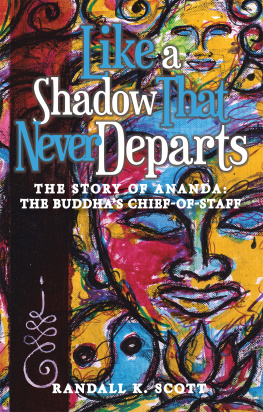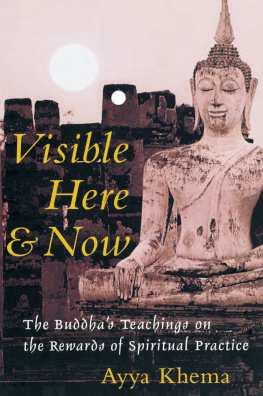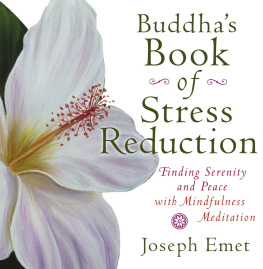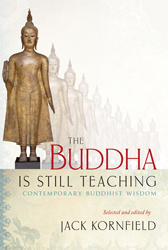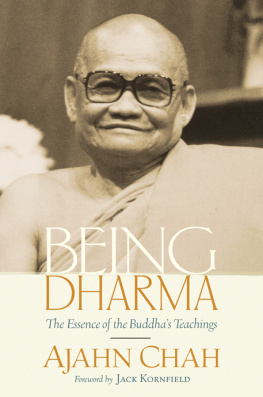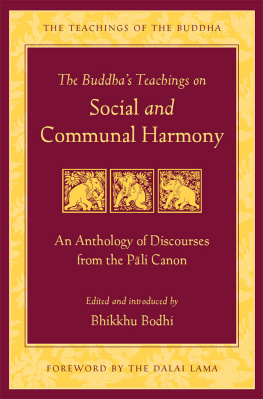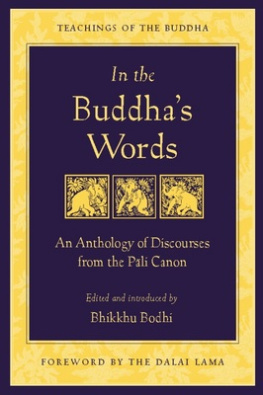The Buddha for Modern Minds
A non-religious guide to the Buddha & his teachings
Lenor Lambert
COPYRIGHT

Published by Flourish Press
PO Box 322
Dee Why, NSW, 2099
Australia
All rights reserved.
Copyright 2021 by Lenor Lambert
ISBN: 978-0-6450650-7-7
Cover by Dani Streay @ Altered Aspect
Book design by Rasel Khondokar
Endorsements:
This lucid and practical guide to the Buddhas teaching will be of value to anyone who seeks to lead a flourishing life in todays challenging and uncertain world. Lenor Lambert unpacks with great skill and wit the core ethical vision and meditation practices of Buddhism, revealing them as an art of living that is as relevant today as it ever has been.
Stephen Batchelor, author of After Buddhism.
Lenores feet-on-the-ground qualities saturate this book. So does her remarkable diligence. Let these qualities inspire you to make the Buddhas wisdom your own: taking it to heart, and leaving nothing out."
Gregory Kramer, author and founder of Insight Dialogue.
Dedication
The ancestors: for keeping the dharma alive for 2,500 years
The teachers: for welcoming my dumb questions and more
The fellow travellers: for engaging your courage and walking the path with me
Acknowledgements

T
his book would not have come to life without the encouragement and support of my husband Matthew Ma. Its taken an enormous amount of time to create time away from contributing to our shared life.
The decision to self-publish also entailed an investment for which the return is simply helping people, most of whom well never meet. We made that decision because I didnt want a publisher taking it out of print if it isnt sufficiently profitable. If this book can help one person flourish in life it was worth creating.
I also acknowledge and am deeply grateful to the three dharma teachers whove had the biggest impact on my knowledge and practice. Each has contributed to the quality of this book. They are: Stephen Batchelor, Winton Higgins, and Gregory Kramer.
CONTENTS
Preface

Is this book for you?
Can you recommend a secular book for beginners?
Ive been asked this question so many times over the years, but I didnt have one that I could wholeheartedly recommend. There are lots of terrific books but I hesitate to recommend them for beginners because either they assume the reader already has a basic knowledge or they take the religious route, including ideas like rebirth and literal karma, which can be difficult to swallow for Westerners.
The Buddhas teachings are vast and come in many forms, so it took me years to find clarity - to feel I could get my arms around them. I was confused for a long time. As I started teaching, I found that this experience gave me a knack for helping beginners get a grip on the concepts, for crystallising them in an accessible way and helping people see how it all fitted together.
So I decided to capture this in a book in the hope that others might achieve a basic orientation more quickly, especially those who mightnt have access locally to deeply knowledgeable teachers as Ive been lucky to.
Ive summarised here what Ive spent two decades of my life piecing together through a great deal of reading, many podcasts, many retreats, attending dharma groups, and asking all of the dumb questions that occurred to me along the way. (On my very first retreat, Gregory Kramer referred to me as the curious one.)
I originally wrote this book for people like myself: people who are curious to know about the Buddhas teachings but cant accept metaphysical ideas like rebirth if we tried; people who sense there is something real and valuable in there, but who balk at statements like life is suffering and cant quite figure out how this leads to happiness; people who are seeking a less stressful life, or a more rich and fulfilling one.
Many years down the track, Ive realised its also gold for people whove been exploring for a while, and who want a reference book for the basic ideas contained in the teachings. Ive sometimes needed to refresh my memory of the many concepts and lists. This book can serve as a quick reference guide for some of those key teachings.
In a nutshell, Siddhattha Gotama was a man who lived in India two and a half thousand years ago. He is commonly called the Buddha which means awakened one. His teachings offer a path to full human flourishing by embracing life - the whole kit and caboodle.
Some pain and unpleasantness in life is inevitable: its a part of being a human being; it comes with the package. We create another heap of it by our response to unpleasant feelings. Gotamas teachings are a powerful recipe for making peace with the inevitable pain and for letting go of the second dose which we cook up for ourselves.
That might sound interesting to you but there are loads of books on Buddhism, so why read this one in particular?
Youll probably get a lot out of this book if any of the following resound with you:
- You have a curiosity about Gotamas teachings but would like your introduction to be free of the cultural trappings of the Asian Buddhist traditions. Of course I have my own lens through which I digest and present the teachings. The remaining items in this list describe the primary colours of that lens.
- Youd like the teachings explained in a down-to-earth way and in a modern, relevant, non-religious context.
- Your outlook leans more towards the scientific than the metaphysical/pseudoscientific. (Gotama has been called an unsurpassed scientist of the real.)
- Your orientation to choosing what you learn has a practical bent to it. You like to know the so what? of new ideas and you like to road-test them. (Knowing about the teachings wont do much for you. Applying them will.)
- You like to think things through yourself rather than swallow someone elses insights whole.
If that list rings bells for you, then youre likely to find this book helpful.
Introduction

W
hen I started exploring Buddhism, I thought of it as one of the worlds great religions. If your starting point is anything like mine, you probably know that the Dalai Lama is a Buddhist and think he seems like a pretty happy chap - not a bad ambassador. You might have heard of Zen but know it mostly as an approach to garden design. You probably think that a Buddha or two adds a touch of serenity to interior decor, perhaps a visual reminder to chill. And you may have wondered why some Buddha statues are fat and some are not.
So it might surprise you to know that Gotama did his best to prevent his teachings being turned into a religion; that the Dalai Lama belongs to a Buddhist tradition that didnt start until 1,200 years after Gotama died; that Zen began 700 years after Gotama died and originally came from China, not Japan; that the word Buddhism didnt exist until about 180 years ago when Westerners claimed to have discovered it in Asia; and that Gotamas teachings could be seen to have more in common with modern philosophy and psychology than they do with religion.
Next page


